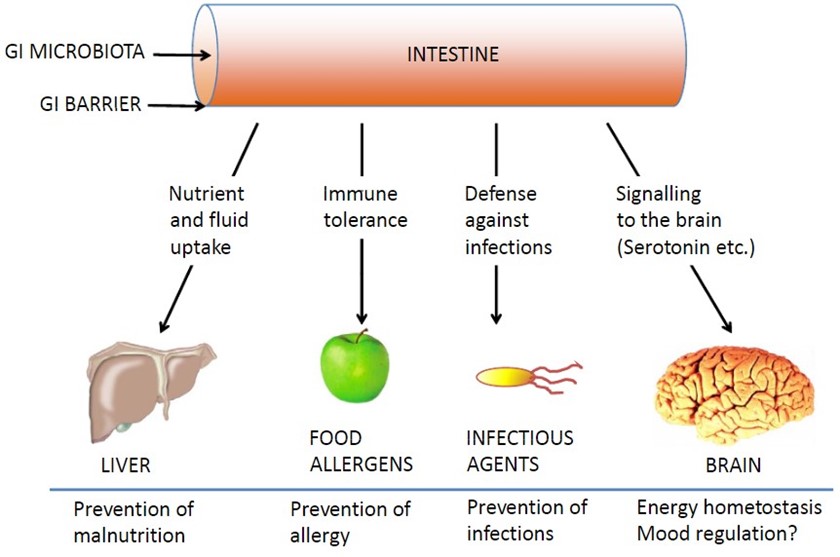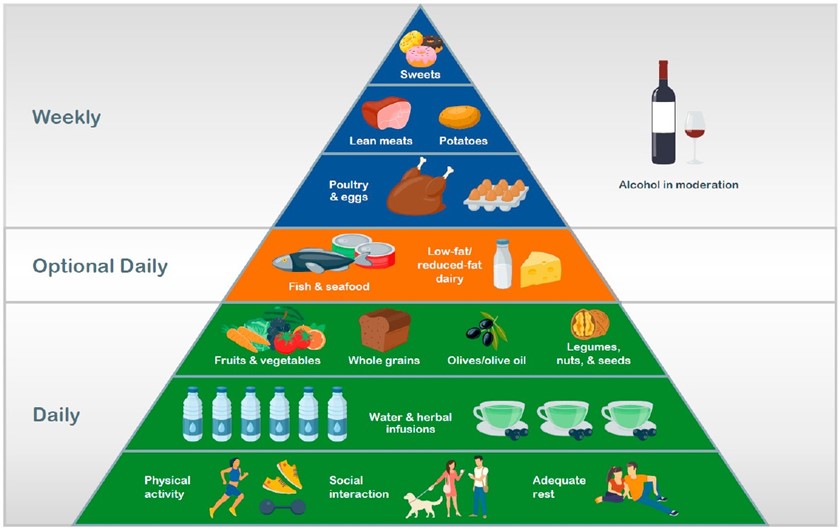
Gut microbes, also known as gut microbiota, are the trillions of microorganisms living in our digestive tract. They play crucial roles in digestion, immune function, and overall health. A diverse and balanced gut microbiome is essential for optimal well-being. Fructooligosaccharides (FOS) are prebiotic fibers that serve as food for beneficial gut bacteria. They promote the growth of healthy gut microbes, improve digestion, and may enhance mineral absorption. FOS can be found in foods like bananas, onions, and garlic. Common gut problems include irritable bowel syndrome (IBS), inflammatory bowel disease (IBD), and gastroesophageal reflux disease (GERD). Symptoms may include abdominal pain, bloating, diarrhea, constipation, and heartburn. If you experience persistent symptoms, consult a healthcare professional. Home remedies for indigestion include:
Lactobacillus bulgaricus is a probiotic bacteria commonly found in yogurt and other fermented dairy products. It helps maintain a healthy gut microbiome, aids in lactose digestion, and may boost immune function. Regular consumption of foods containing L. bulgaricus can support digestive health. LGG stands for Lactobacillus rhamnosus GG, a well-studied probiotic strain. Benefits of LGG include:
To improve gut health naturally:
Gut Health: Key Questions and Answers
What are gut microbes and why are they important?
What are fructooligosaccharides and how do they benefit gut health?
What are common gut problems and their symptoms?
What are some effective home remedies for indigestion?
However, if symptoms persist, consult a doctor.
What is Lactobacillus bulgaricus and how does it contribute to gut health?
What is LGG and what are its benefits?
LGG can be found in some yogurts and probiotic supplements.
How can I improve my gut health naturally?
These lifestyle changes can promote a healthy gut microbiome and overall digestive wellness.
Gut health encompasses a wide range of positive aspects of the gastrointestinal (GI) tract, including effective digestion and absorption of food, the absence of GI illness, an effective immune status, normal and stable intestinal microbiota, and a state of well-being. However, it is still unclear how to define it and measure gut health. The GI barrier, which is located next to the GI microbiota, appears to be the key to understanding the complex mechanisms that keep the gut healthy. Any impairment of the GI barrier increases the risk of developing inflammatory, and functional GI diseases, infectious, as well as extraintestinal diseases such as immune-mediated and metabolic disorders. The gastrointestinal tract contributes to health by ensuring nutrient, mineral, and fluid digestion and absorption; inducing mucosal and systemic tolerance; defending the host against infectious and other pathogens; and signaling from the periphery to the brain.
Diagnostic techniques must include both subjective complaints and objective parameters to evaluate gut health. It is impossible to evaluate complaints without first recording a person's history through a questionnaire or engaging in a structured personal conversation, like one with a doctor. Questionnaires are a good way to screen people and familiarize them with this specific problem, ideally in combination with some biomarkers of prognostic relevance. This approach necessitates the development of validated questionnaires for bowel-related complaints and symptoms, allowing doctors to record improvements in well-being, quality of life, and prognosis in specific populations. One such questionnaire is the Inflammatory Bowel Disease Questionnaire (IBDQ), a reliable and validated tool used to assess the health-related quality of life (HRQoL) of adult patients with Crohn's disease, ulcerative colitis, and IBD. There are numerous strategies that can be used to support GI health and the gut. Hygiene is associated with many approaches to maintaining gut health and preventing GI diseases such as infection, antibiotic-associated diarrhea, IBD, IBS, food allergy, and so on. This concept maintains that any disruption in the balance between the microbiome and the mucosal immune system will lead to GI barrier impairment and, as a result, an increased risk of gut health and the development of GI disease. Avoid conditions such as: To maintain good gut health: Diets high in fat and fructose have been shown to disrupt the GI barrier, leading to the development of fatty liver disease and subclinical inflammatory conditions associated with metabolic disturbances. On the other hand, dietary changes have been shown to support the prevention of serious conditions like cancer, obesity, and allergies. A balanced diet: Traditional practices: Meditative methods from Chinese medicine and other Asian cultures (e.g., Ayurveda, tai-chi) are gaining acceptance for maintaining gut health and well-being. Probiotics and Prebiotics: Everyone requires food to stay alive, but eating too little, too much, or the wrong type of food can harm health. Excess sodium intake leads to the highest percentage of cardiometabolic deaths (9.5%). Inadequate intake risks: Excess intake risks: A probiotic is a live microorganism that, when administered in sufficient amounts, provides health benefits to the host. Advantages of probiotics: Probiotics support: A healthy diet includes the right balance of macronutrients and micronutrients to meet physiological needs. Healthy eating features: Carbohydrates are the main energy source. Whole grains and fruits/vegetables also provide dietary fiber. Proteins provide energy and essential amino acids. Sources include legumes, grains, meat, dairy, and eggs. Fat types: Essential fatty acids: Omega-3 and omega-6 must be obtained through diet. Antioxidant micronutrients (vitamins A, C, E, copper, zinc, selenium) may help reduce age-related disease risk. Water: Essential for hydration, micronutrient transport, and provides calcium/magnesium.
Gut health includes digestion, immune function, microbiota balance, and overall well-being. GI barrier impairments can lead to GI, metabolic, and immune disorders. Use questionnaires and biomarkers to assess gut health. Strategies include hygiene, diet, stress management, and avoiding harmful substances. Probiotics and a healthy diet can improve gut and overall health.Introduction
Five Major Criteria for Gut Health

The Gut Contributes to the Health of Other Organs
How to Test Gut Health?
How to Maintain Gut Health?
The Relationship Between Diets and Diseases
The Role of Probiotics on Gut Health
Healthy Diet Recommendations

Summary
References
1. 'Gut Health': A NewObjective in Medicine? - Researchgate.
4. (PDF) Health-Benefits-of-Probiotics- Researchgate.
5. Defining a Healthy Diet:Evidence for the Role of Contemporary Dietary